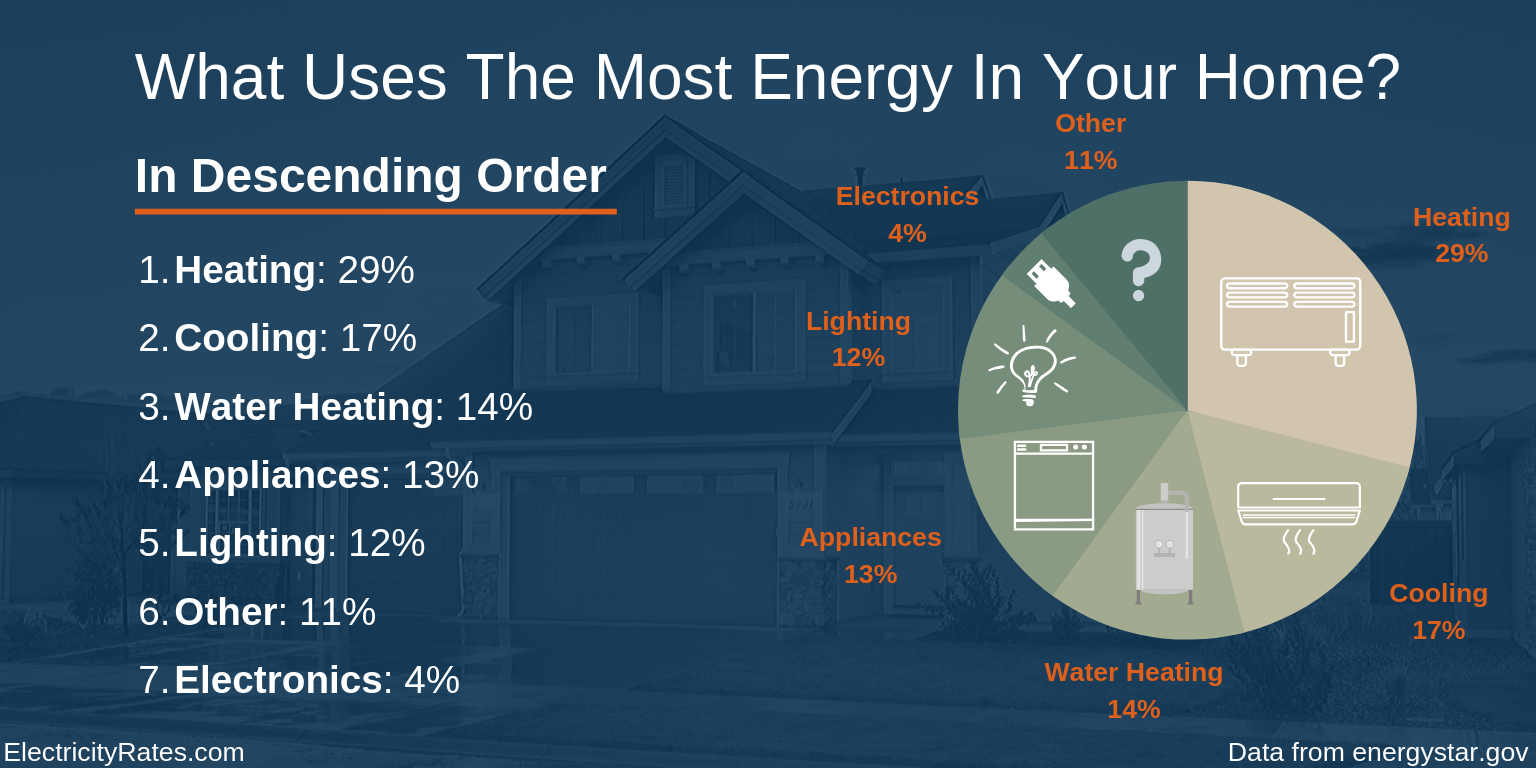The browser you are using is not supported. Please consider using a modern browser.

The Ultimate Strategy to Save On Your Electric Bill
What has the biggest influence on energy bills?
If we want to make a big impact, we need to understand that there are certain things that take up more energy than others. If we really want to save, we should go after the biggest energy suckers first.
Energystar.gov lets us know what those are:
Now not everyone will have these exact percentages. The climate you live in has a big impact on how much heat or air conditioning you use.
But the average is a good place to start.
Heating
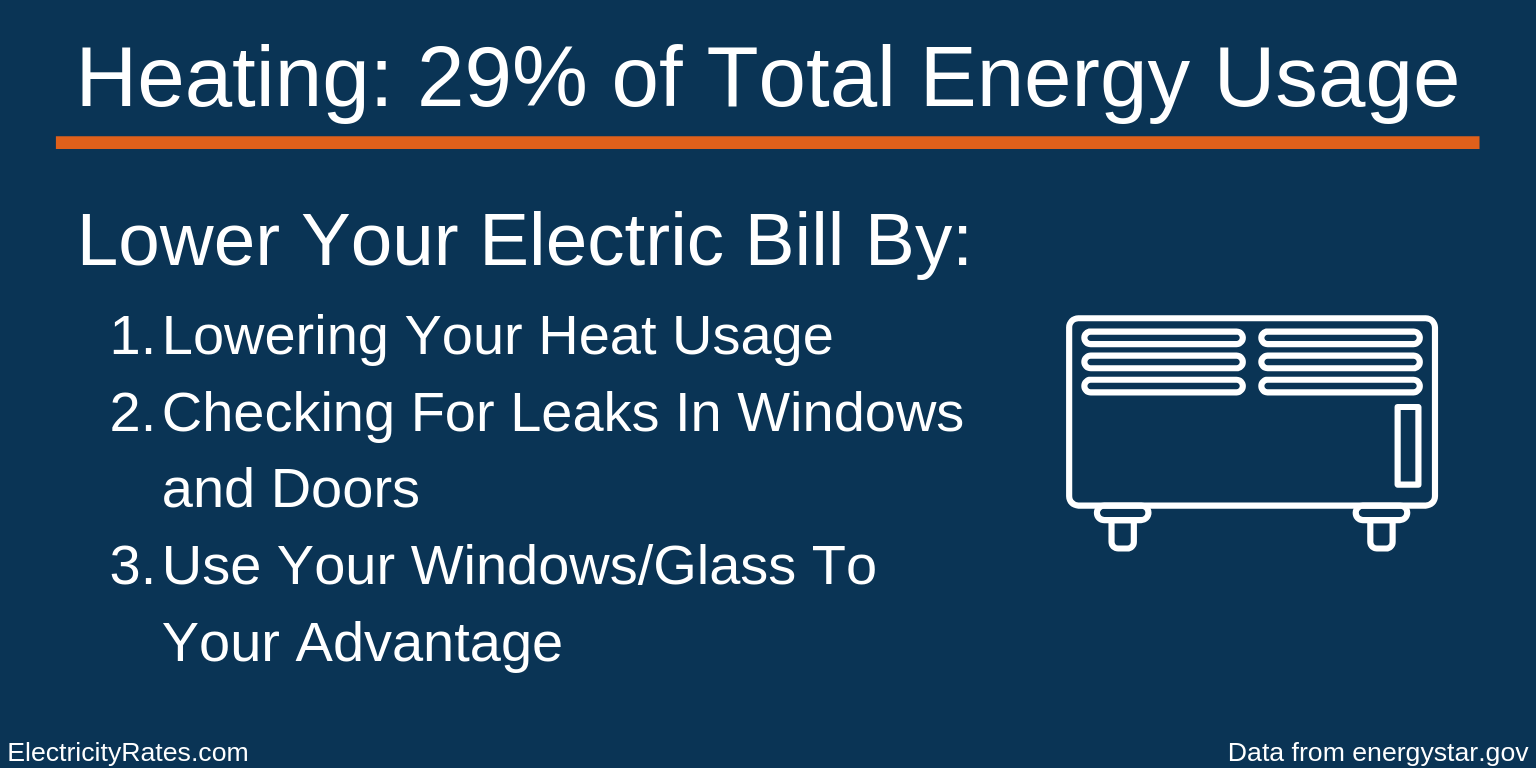
Usually, homes heat with natural gas, electricity, or fuel oil. So heating may not be a part of your electric bill.
But that does not matter. This post is about saving money. It doesn’t matter what bill it is on.
The best way to lower your heating bill is to use it less (duh), so here are some tactics to do just that.
Lower Your Heat Usage
Pretty obvious, but needs to be said.
Every place will be different, but try to keep the room temperature as low as comfortably possible. An extra layer or two can help you with that.
You can test this by lowering it one degree each day until you are too cold. After that, go back up a degree. If you find that you are comfortable again, you have found a solid temperature for you.
When nobody is home, lower the thermostat to 55° F to maximize your energy savings. If you are gone for regular intervals throughout the week, you can use a programmable thermostat to lower the temperature when you are gone or have a smart thermostat do it for you.
Check For Leaks
Check for leaks in your doors and windows. If there are any, make sure you seal it with caulk or have a professional come out and do it.
Use Your Windows/Glass To Your Advantage
There are two ways you can do this:
- If you are planning to replace your windows, get high-efficiency ones. These usually two-pane or three-pane windows that insulate your house better.
- If you have the sun directly hitting some of your windows, open the blinds and allow the sun to help your heating system out.
Cooling
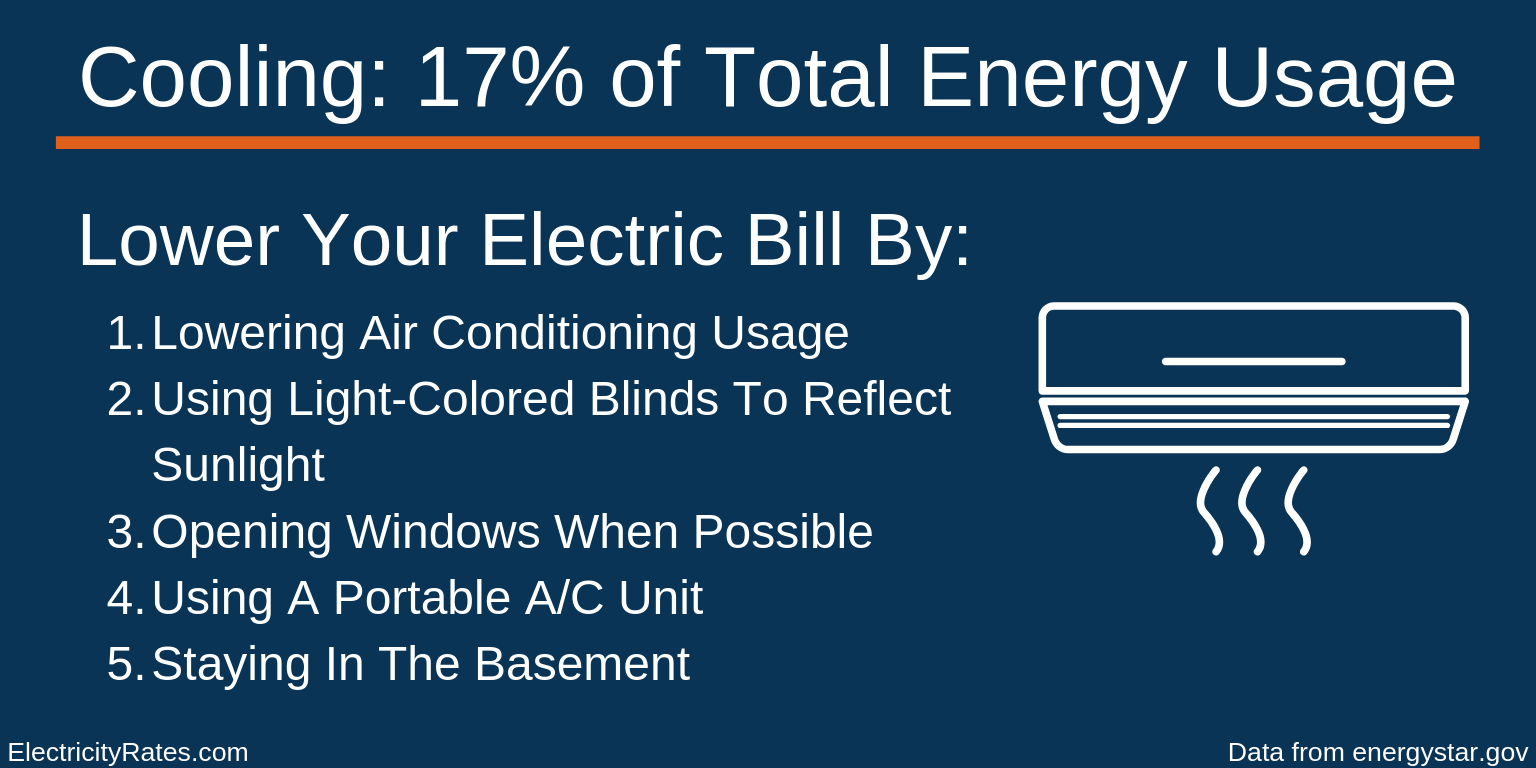
Cooling is the second largest item on your electric bill, but if you live in a warmer climate, it is probably the largest.
Many of the heating techniques described above will work for cooling as well! We just have to tweak a few of them.
Lower Air Conditioning Usage
Although you can put more layers on, there is only so much you can take off.
When it comes to air conditioning, flip the technique you used for heating. Turn it up a degree until you are too hot. Then down a degree to find a comfortable temperature.
When you leave, you can turn your air conditioning completely off, but you may not want to. Because the hotter your house is, the harder your fridge has to work. If your fridge works too hard, it could break.
If you are nervous about this, set your air conditioning to 86° F while you are away. Your fridge will thank you.
Use Your (light-colored) Curtains To Your Advantage
Light-colored curtains reflect sunlight and therefore reflect heat. So if you have sunlight directly hitting your window, you want to have those closed to help your air conditioning out.
Open Windows When Possible
Airflow over air conditioning any day. This can be especially beneficial at night when it is cooler.
Use A Portable Unit
If you are in a small area of your house for most of the day, get a portable window unit. This way, you don’t have to waste energy cooling the entire house when you don’t need it.
Hang Out In The Basement
Your basement is the coolest place in your home. If you don’t have an issue with it, hunker down in your basement to avoid the summer heat.
Water Heating
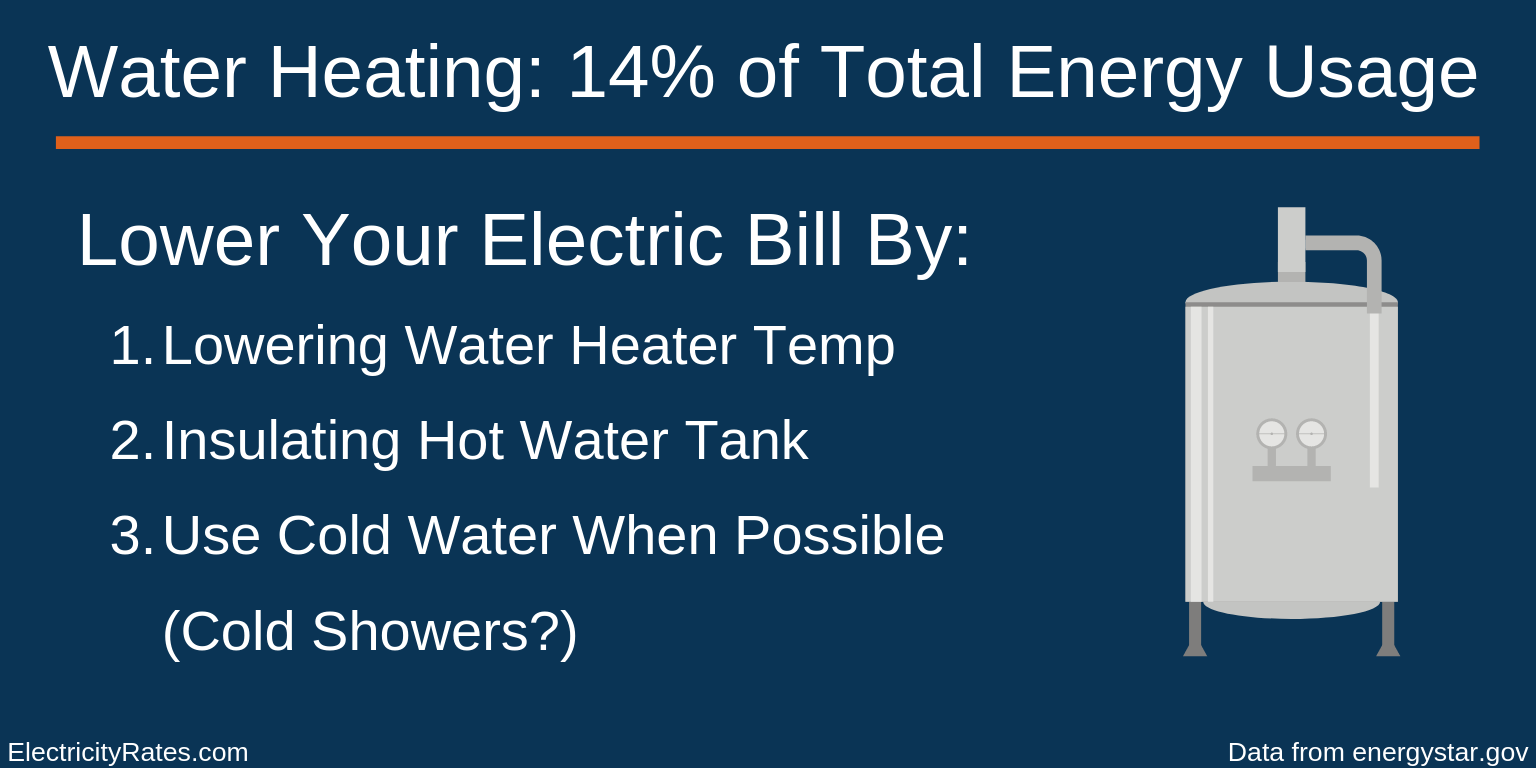
It’s surprising how much energy this consumes right!?
Most people have a gas water heater, but again, there are electric water heaters and we only really care about saving money, not what bill it’s on.
So here are a few things that you can do to lower your water heating bill.
Lower The Temperature
When hot water tanks are installed, they are usually set to 140°F. You can likely turn this down to 120°F without noticing any difference.
And hey, if you do notice a difference, you can always turn it back up.
Insulate the Tank
Just like your house, your water tank will lose heat due to poor insulation. Insulating the tank will help your water heater from having to work as hard.
Cold Showers
This where you draw the line?
Okay, cold showers can be extreme. But there are actually some health benefits associated with it.
But if cold showers are not for you, then using cold water when you can will help as well. Use cold water when you are brushing your teeth or doing laundry to cut back on that bill.
Appliances
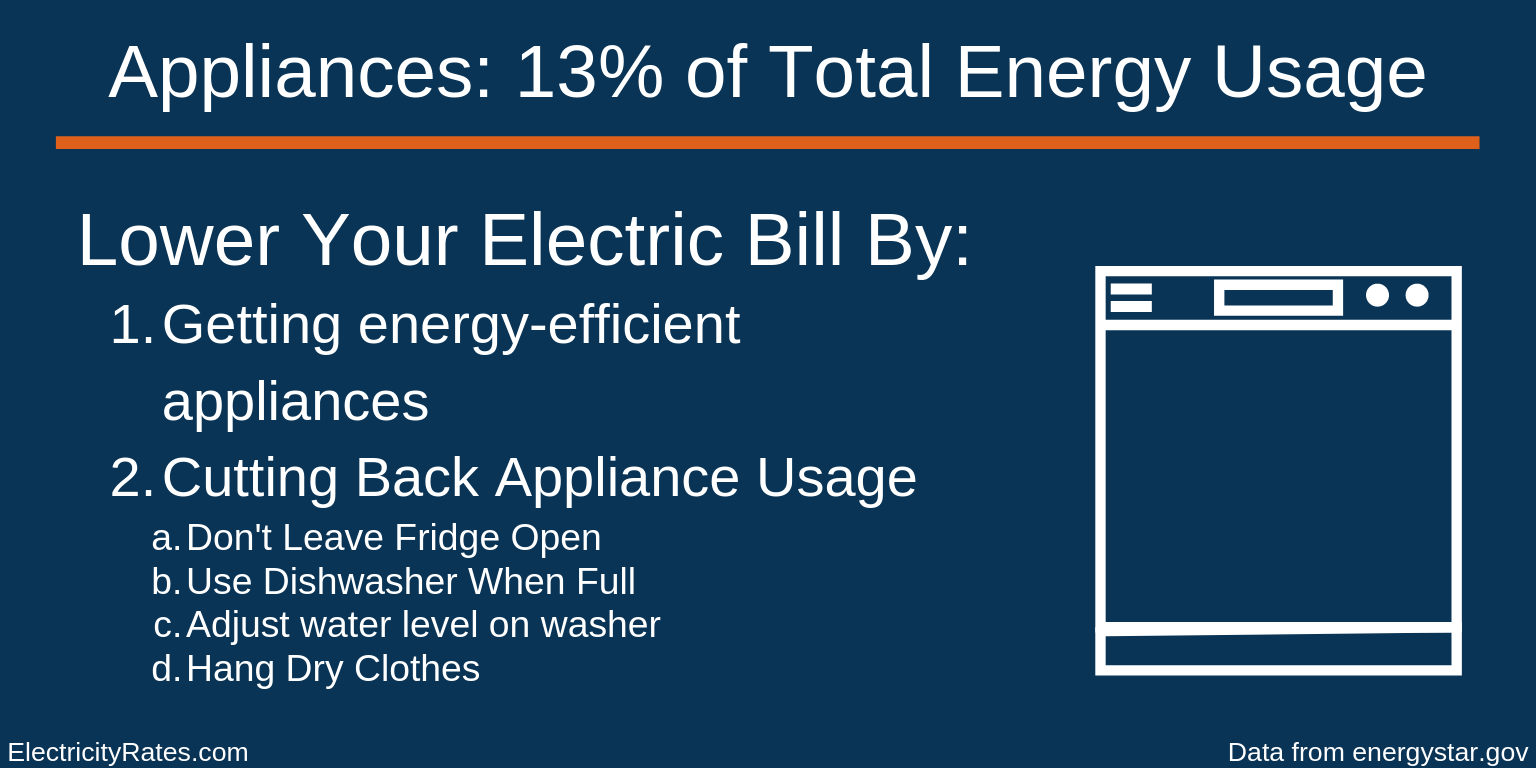
These are your washers, dryers, refrigerators, dishwashers, etc. and all these items combined are right up there with your water heating consumption.
Saving energy on appliances is all about finding the right ones and using them sparingly.
Get The Right Appliances
Nowadays most appliances give you estimates on how much each one will cost in a year. Choose energy-efficient models when you purchase them.
You can compare energy-efficient models by comparing their ENERGY STAR ratings. Appliance stores usually have these numbers displayed next to the unit.
Cutting Back Appliance Usage
There are a few simple steps you can take to cut back on appliance usage:
- Don’t leave the fridge door open longer than you need to.
- Use the dishwasher only when it is full.
- Adjust the water level on the washer depending on the size of the load.
- Hang dry clothes, either through a clothesline or a collapsible drying rack.
Lighting
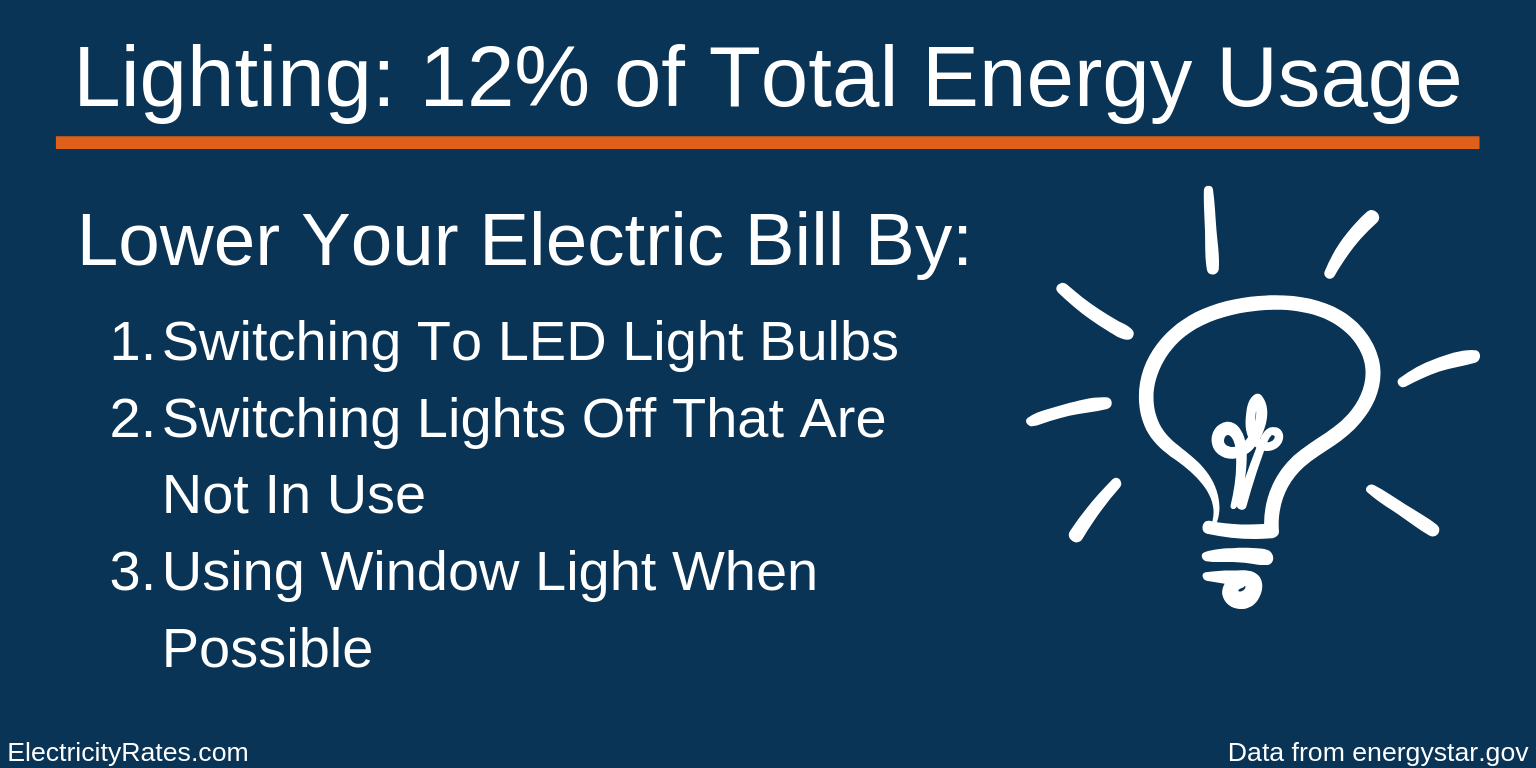
Lighting comes in right behind appliances at 12% of the total energy usage in your home. Luckily for all of us, lighting can be one of the easiest ways to save energy.
Switch To LED Light Bulbs
LED light bulbs are way more energy-efficient than traditional light bulbs, using only a quarter of the energy and lasting up to 25 times longer.
Also, certain LED bulbs have a bunch of cool features. You can set timers on them, make them change color, use motion sensors and dim them to use less power when you don’t need all that light.
Switch Lights Off
Simple. When you are not using them, turn them off.
Use Window Light
If you can allow natural light in instead of using the lightbulb, do it!
Electronics
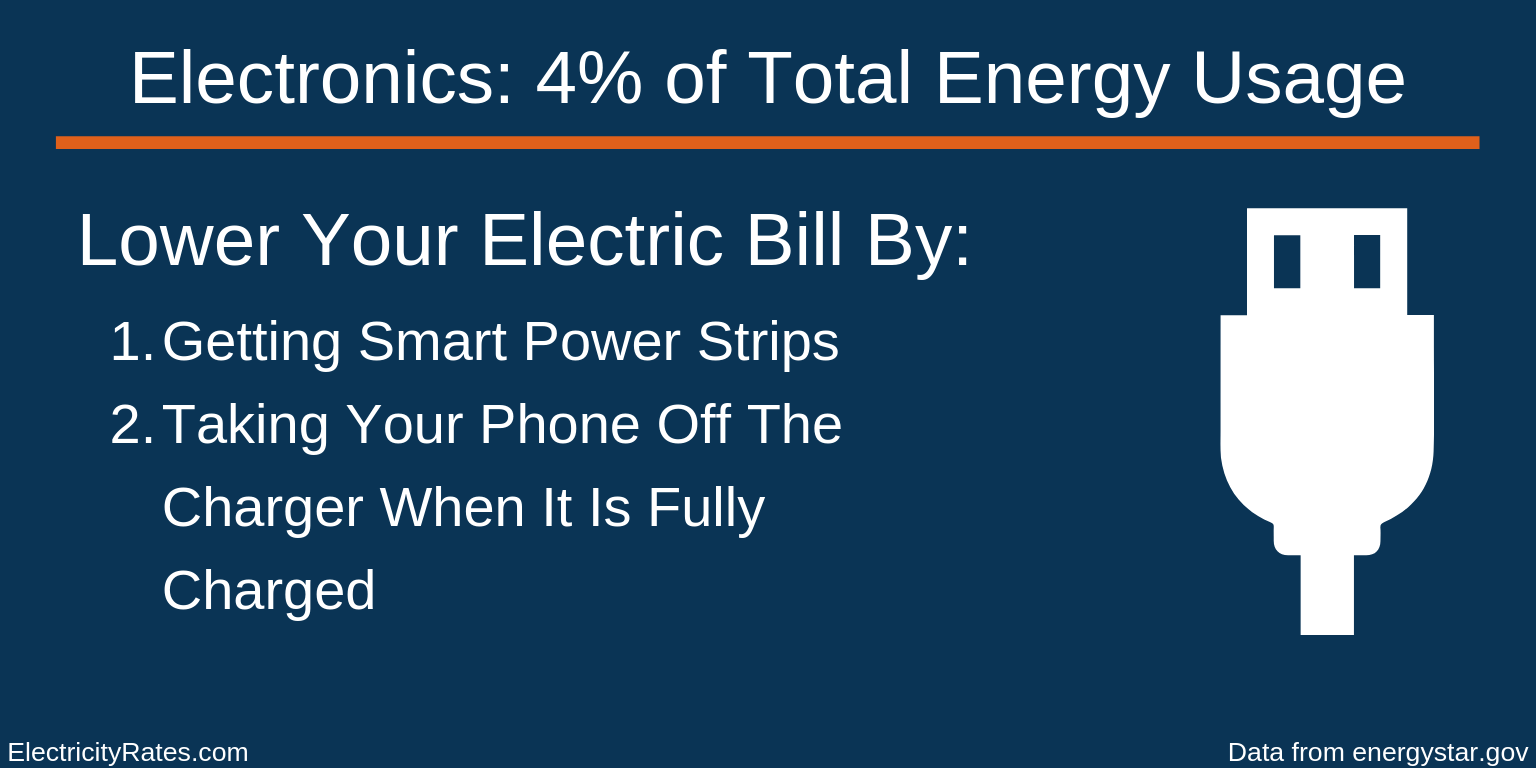
Yes, this is not technically in order at this point as “other” should go before electronics, but the recommendation for “other” is a better one to end off on so just bear with me here.
Electronics take up the smallest percentage, but when you are trying to do everything you can to save money on your electric bill, all those little savings add up.
Get Smart Power Strips
You have probably heard that even if your electronics are plugged in, they still draw power.
Smart power strips will detect when devices are in standby mode and cut off the power supply.
There are other articles that will tell you to unplug electronics when you are not using them, but with a smart power strip, you won’t have to even think about it.
You could go around taking the plug out of every outlet when you are not using it, but this way easier.
Take Your Phone Off The Charger When It Is Fully Charged
If your phone is plugged in at full charge, the outlet will still have to draw power to keep it at 100%.
So take it off the charger and put it in power-saving mode when you are not using it. This is not only good for your electric bill, but it is also good for your phone’s battery. Lithium-ion batteries are not big fans of staying on the charger at 100%. Doing this hurts the life of the battery.
Other
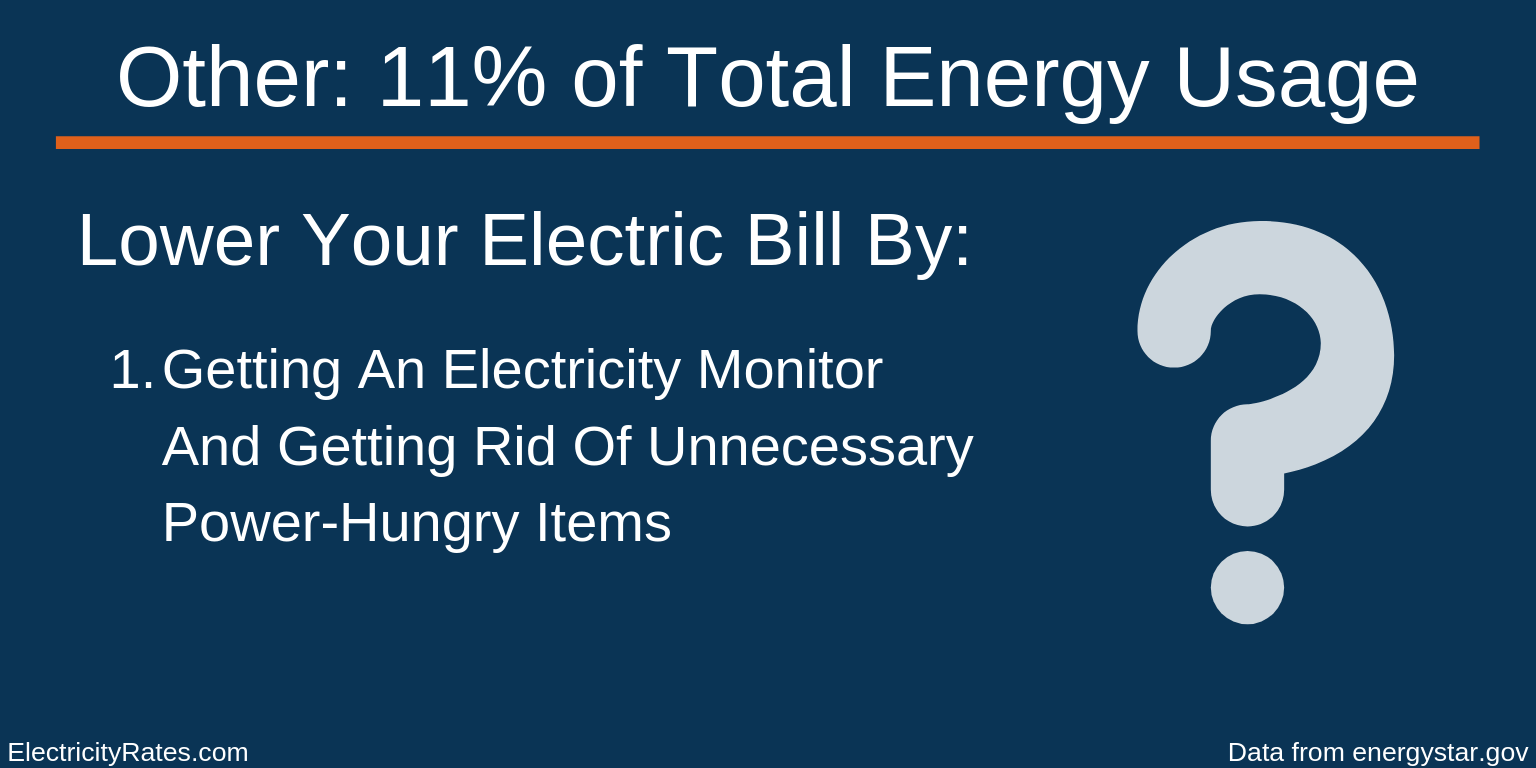
This can be a whole variety of things that don’t fall into any of the above categories. Energystar.gov uses dehumidifiers and game consoles as examples (why games consoles wouldn’t just go in electronics is beyond me).
What are these “other” items for you? I can never really know, so it is hard for me to give specific recommendations.
However, I can give a broad recommendation that will fit anyone’s needs.
Get An Electricity Monitor
There are two ways you can go about this.
- Go expensive – get something like the Sence, which is installed into your electrical panel to monitor all your electrical usage.
- Go cheap – get something like this simple monitor that I found on Amazon and go one by one to each of your appliances
The more expensive option will be much quicker in finding out what is sucking up all your energy, but the cheaper monitor will be… well cheaper.
Either way, these monitors will show you if there is something in your home that is taking an unusual amount of power. If it is something you can go without, get rid of it.
That’s Almost Everything!
There is a way for you to save on your electric bill, without having to change your usage at all. How do you do this? By switching providers through ElectricityRates.com!
If you live in a deregulated state, you can enter your ZIP Code and compare energy providers in just a few clicks.
